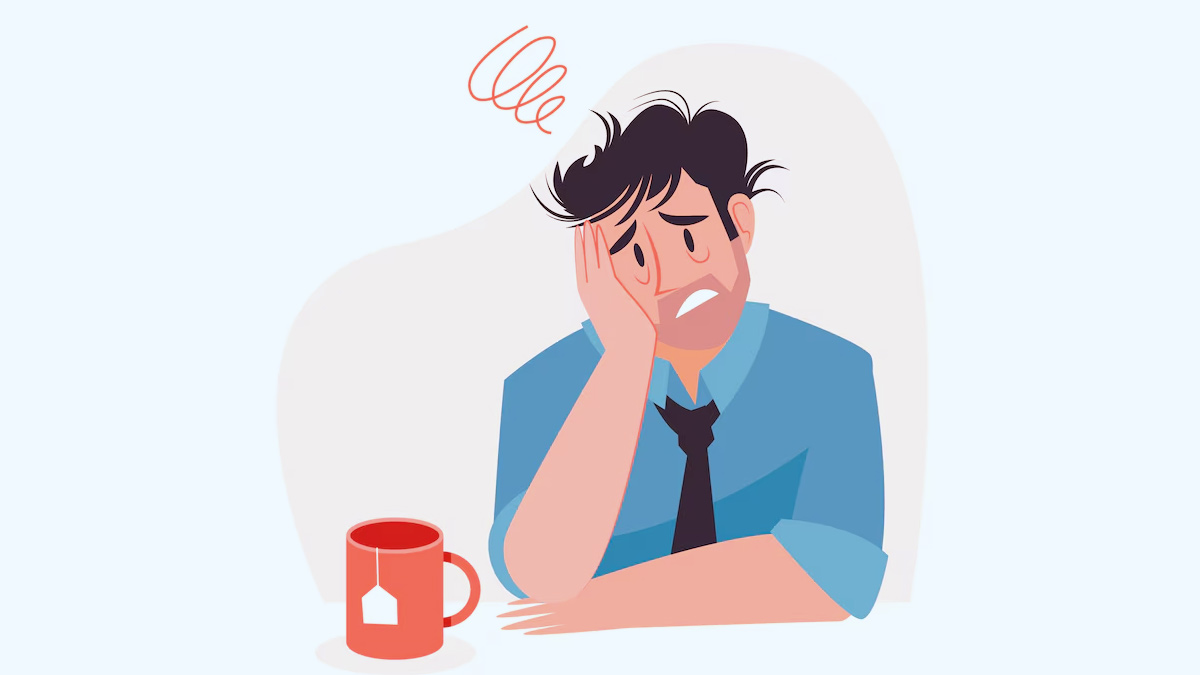
For many, a steaming cup of coffee is the ultimate wake-up call, a comforting ritual that sparks energy and sharpens focus. But have you ever noticed your hands trembling, your heart racing, or a sudden wave of restlessness after indulging in your favourite brew? That jittery feeling can turn your coffee buzz into an unwelcome episode of overdrive.
Table of Content:-
If you’ve found yourself wondering why coffee makes you feel this way, you’re not alone. While caffeine, the hero behind coffee’s energising effects, can be a lifesaver for sluggish mornings, it also has a stimulating side that doesn’t sit well with everyone. Let’s uncover the science behind those coffee jitters and how you can enjoy your brew without losing your cool.
Understanding Caffeine and Its Effects
OnlyMyHealth team interacted with Reshma Nakte, Clinical Nutritionist, Weight Loss Expert, and Lactation Consultant, Mumbai, to understand the causes behind the jitters after coffee consumption.
She explained, "Caffeine is probably the most frequently ingested pharmacologically active substance in the world. It is found in common beverages like coffee, tea, and soft drinks, as well as in cocoa-based products and certain medications. Given its widespread use, there is significant interest in understanding its potential adverse effects on health."
Caffeine works by stimulating the central nervous system, increasing alertness and temporarily combating fatigue. While this can be beneficial in moderation, excessive or poorly timed caffeine consumption can lead to side effects such as jitteriness.
Also read: Coffee During Pregnancy: Is It Safe for Baby's Brain Development?
Why Does Coffee Make You Jittery?

Caffeine Sensitivity
Not everyone metabolises caffeine at the same rate. Reshma highlights that genetic differences play a role. She said, "Some people metabolise caffeine more slowly, making them more susceptible to its effects, such as anxiety, restlessness, or jitters."High Caffeine Intake
Drinking too much coffee can overstimulate your nervous system. The recommended daily caffeine limit for healthy adults is about 400 mg, which is roughly equivalent to four standard cups of coffee.Drinking Coffee on an Empty Stomach
Consuming coffee without food can lead to faster absorption of caffeine, intensifying its effects.Low Tolerance or Infrequent Consumption
If you’re not a regular coffee drinker, your body might be unaccustomed to caffeine, making its stimulating effects more pronounced.Additives in Your Coffee
Sweeteners, syrups, and sugar often added to coffee can also contribute to feelings of restlessness and energy spikes.Dehydration
Caffeine acts as a diuretic, potentially leading to dehydration, which can exacerbate jitteriness.
How to Manage and Avoid Jitters

Reshma advises that moderation is key:
"For the healthy adult population, moderate daily caffeine intake,up to 400 mg, is not associated with significant adverse effects. However, specific groups, such as reproductive-aged women and children, should exercise caution and consume lesser amounts."
Here are some practical tips:
- Monitor Your Intake: Gradually reduce your daily coffee consumption if you notice jitteriness.
- Eat Before You Drink: Pair your coffee with food to slow the absorption of caffeine.
- Stay Hydrated: Drink plenty of water alongside your coffee.
- Opt for Decaf: If you're highly sensitive, decaffeinated coffee offers the taste without the jitters.
Be Mindful of Other Sources of Caffeine: Limit tea, energy drinks, or chocolate if you’re already consuming coffee.
Reshma also emphasises the importance of tailoring caffeine intake to individual needs:
"Reproductive-aged women should consume ≤300 mg of caffeine per day, while children should limit intake to ≤2.5 mg per kg of body weight. For everyone, understanding personal tolerance levels is crucial."
When to Seek Professional Advice
If you continue to experience jitters despite moderating your coffee intake, consider consulting a healthcare professional. They can evaluate whether underlying factors, such as anxiety or specific health conditions, are contributing to your sensitivity.
Coffee can be a delightful addition to your day, but like all good things, it’s best enjoyed in moderation. By understanding how caffeine affects your body, you can make informed choices to enjoy your coffee without the jitters.
Also watch this video
How we keep this article up to date:
We work with experts and keep a close eye on the latest in health and wellness. Whenever there is a new research or helpful information, we update our articles with accurate and useful advice.
Current Version